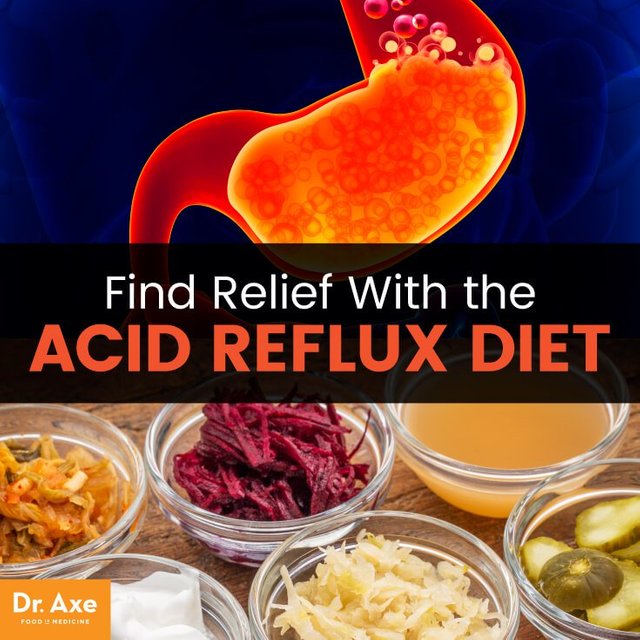Diet for patients with reflux
Gastroesophageal reflux occurs when stomach acid returns to the esophagus due to weakness or damage of the esophageal sphincter, which irritates the esophageal membranes and causes heartburn that extends to the middle of the chest and then to the throat, also called heartburn. The type of food determines the amount of acid produced by the stomach, so the right choice of food types that help control the acid reflux from the stomach to the esophagus.
Eating a diet rich in foods that help get rid of inflammation may help to heal the digestive system and reduce the complications of the condition.
Diet for patients with reflux
Foods must be in the diet for patients with reflux
Fresh vegetables
Foods high in fiber
Bone Sauce
fruits
Apple cider vinegar
Sea vegetables
Healthy fats
Probiotics
Foods to be avoided in the diet for patients with reflux
Foods that usually cause sensitivity to the patient
Beverages containing caffeine and soft drinks
The cream is soaked
Alcohol
Spicy foods
Foods high in fat
Refined grain products
Other foods
Special instructions in diet for patients with reflux
Foods must be in the diet for patients with reflux
Be careful to eat foods that contain a small percentage of additives and free from chemical pesticides. A vegetarian diet that contains a lot of antioxidants, anti-inflammatory compounds, water and fiber from diets that may help to heal faster, because it helps to reduce the lack of nutrients and maintain normal levels of blood pressure and cholesterol as it maintains the survival of bacteria Health.
These include:
Fresh vegetables
Artichoke
Leafy vegetables
Islands
Pumpkin
sweet potato
Asparagus
Green Beans
Peas
Option
Fennel
Foods high in fiber
Vegetables
fruits
Legumes
Whole grains
Nuts
Seeds
Bone Sauce
Which provides amino acids, many minerals, electrolytes, antioxidants and collagen that help in the healing of the digestive system.
fruits
With symptom control because fruits such as citrus and tomatoes can increase pain worse. Suitable fruits:
Apple
Pear
Watermelon
Mulberry
Apple cider vinegar
Is a fermented product that many find helps to balance stomach acid as well as its anti-inflammatory properties that help heal.
Sea vegetables
May help regulate the production of gastric acid
Algae
kelp
Spirulina
Healthy fats
olive oil
Coconut
Avocado
coconut milk
Nuts
Seeds such as shea, almond or flax.
Probiotics
(Which contain beneficial bacteria especially for the digestive system), such as yogurt.
Foods to be avoided in the diet for patients with reflux
Foods that usually cause sensitivity to the patient
The intolerance or sensitization of certain foods such as processed dairy products (raw or fermented milk may be enduring), grains or food products containing gluten, and sometimes eggs or nuts, and artificial ingredients in processed foods should be avoided for people with relapses .
Beverages containing caffeine and soft drinks
Which are often decomposed and also contained on air that can lead to spasms or pain caused by reflux-related gases that get worse.
The cream is soaked
Which can hold the air inside the digestive system.
Alcohol
Beer, wine, and wine can contribute to symptoms, especially when eaten near bed time.
Spicy foods
Such as those made with cinnamon, hot chili and hot sauce.
Foods high in fat
Such as fast food, cheese, processed meats, and fried foods.
Refined grain products
Including packaged snacks such as cakes, chips and cereal bars.
Other foods
Cocoa and chocolate.
Foods rich in sodium.
Citrus or Juices.
Tomatoes or food products made from tomatoes.
Garlic, onion and mint.
Special instructions in diet for patients with reflux
Eat smaller meals, where you prefer to distribute meals throughout the day instead of eating less and fewer meals.
Slow down in drinking or eating, making sure to eat carefully and chew the food thoroughly before swallowing. This will also help to avoid over-eating, which can lead to more gastric acid release.
Sit down when eating.
Do not eat drinks using straw that can hold more gas inside the stomach.
Avoid chewing gum or smoke.
The increase in drinking water reduces the symptoms of GERD and helps improve digestion in general, especially when water replaces too much caffeine.
Avoid tight clothing that can press the abdomen and cause gastrointestinal pain.
Avoid stress, stress and get enough rest.
Avoid smoking and alcohol.
Regular exercise.
Dispose of excess weight.
Raising the head during sleep helps to relieve backlash.
Taking care of the time lag between eating the last meal and sleeping at night: lying down after eating directly can aggravate the symptoms of GERD in many people. It is best to have a small dinner before sleeping for three hours and then relax to facilitate digestion.
